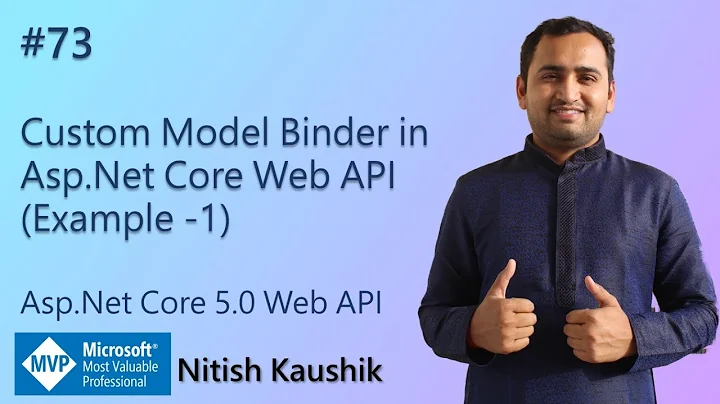web api model binding to an interface
So in case this can help anyone else, I'll go ahead and post the solution I came up with.
As I mentioned above, the interface parameters of the action method can be resolved using DI. But the interface members of that object need to be handled differently.
I created 2 types of Json converters, a single entity type and a collection type, to decorate the interface properties.
Here's a class that needs to be resolved as an action interface parameter.
public class CreateEnvelopeModel : ICreateEnvelopeCommand
{
[JsonConverter(typeof(EntityModelConverter<CreateEmailModel, ICreateEmailCommand>))]
public ICreateEmailCommand Email { get; set; }
[JsonConverter(typeof(CollectionEntityConverter<CreateFormModel, ICreateFormCommand>))]
public IList<ICreateFormCommand> Forms { get; set; }
}
Here's the controller action method
public HttpResponseMessage PostEnvelope(ICreateEnvelopeCommand model)
{
// do stuff
}
Here's the 2 json converters
public class EntityModelConverter<T, Tt> : JsonConverter where T : Tt
{
public override bool CanConvert(Type objectType)
{
return (objectType == typeof(Tt));
}
public override object ReadJson(JsonReader reader, Type objectType, object existingValue, JsonSerializer serializer)
{
return serializer.Deserialize<T>(reader);
}
public override void WriteJson(JsonWriter writer, object value, JsonSerializer serializer)
{
serializer.Serialize(writer, value, typeof(T));
}
}
public class CollectionEntityConverter<T, Tt> : JsonConverter where T : Tt
{
public override bool CanConvert(Type objectType)
{
return (objectType == typeof(IList<Tt>));
}
public override object ReadJson(JsonReader reader, Type objectType, object existingValue, JsonSerializer serializer)
{
IList<Tt> items = serializer.Deserialize<List<T>>(reader).Cast<Tt>().ToList();
return items;
}
public override void WriteJson(JsonWriter writer, object value, JsonSerializer serializer)
{
serializer.Serialize(writer, value, typeof(IList<T>));
}
}
Related videos on Youtube
chrisl91
Updated on September 14, 2022Comments
-
chrisl91 over 1 year
I'm trying to bind a controller action to an interface but still maintain the default binding behavior.
public class CoolClass : ISomeInterface { public DoSomething {get;set;} // ISomeInterface } public class DosomethingController : ApiController { public HttpResponseMessage Post(ISomeInterface model) { // do something with model which should be an instance of CoolClass } }The consumer of my service knows nothing of CoolClass so having them add "$type" to the Json they are passing would be a hack in my opinion. I'd like to be able to handle it in the service. If I specify CoolClass as the action parameter it works fine.
EDIT: So I found a partial solution to my question here Dependency injection for ASP.NET Web API action method parameters but there is a follow up issue. That solution does not resolve interface properties. See my example below.
IConcreteClass will be resolved, but ISubtype will not.
public class SubConcreteClass : ISubtype { // properties } public class ConcreteClass : IConcreteClass { public ISubtype Subtype {get;set;} }Once the media formatter sees that is can resolve the type in IConcreteClass, it then reads the entire stream. So I'm guessing there is no chance to resolve interface members.
-
chrisl91 over 10 yearsThanks Alex. I saw that page but I was really hoping this could be resolved with my DI container. Is it not possible to resolve API action interface parameters with DI?
-
Rama almost 10 yearsThis is a great solution.
-
BrianS almost 9 yearsThis is beautifully simple and effective. Are there any drawbacks in using this versus custom model binding? Any thoughts on how to use something like this on a collection where the interface has multiple implementation classes (e.g. IAuto, Car:IAuto, Truck:IAuto)?
-
 Louis Duran about 6 yearsThis advice was not helpful as the linked content doesn't cover generic lists.
Louis Duran about 6 yearsThis advice was not helpful as the linked content doesn't cover generic lists.







